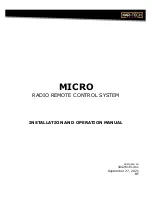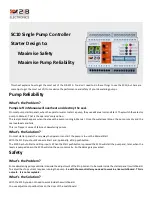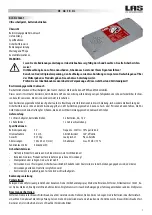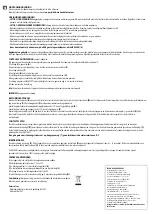
Engine Control System 1A-155
Diagnostic Aids
Poor connection or damaged harness may cause
intermittents. Check for the following conditions and, if
the fault is detected, repair or replace the faulty portion.
• Poor connection at ECM: Inspect harness
connectors for backed-out pins, improper mating,
broken locks, improperly formed or damaged pins,
and poor pin-to-wire connection.
• Damaged harness: Inspect the wiring harness for
rubbed-through wire insulation or wire broken
inside the insulator. If the harness appears to be
OK, observe the display on Tech 2 while moving
connectors and wiring harnesses related to the
sensor. A change in the display will indicate the
location of the fault.
Test Description
Number(s) below refer to the step number(s) on the
Diagnostic Chart.
3. If the DTC is not detected, the possible cause is
intermittent (intermittent fault).
4. If pins are jumpered and the resistance reads
∞
Ω
,
the cause is open wiring. If pins are not jumpered and
the resistance reads 0
Ω
, the cause is short.
Step
Action
Value(s)
Yes
No
1
Perform the "On-Board Diagnostic (OBD)
System Check".
Was the OBD System Check performed?
—
Go to Step 2
Refer to OBD
System Check
and go to Step 2
2
Check the intake throttle connector for
installation and, if mounted improperly,
connect it certainly.
Is the action complete?
—
Go to Step 3
—
3
Review the DTC.
1.
Using Tech 2, check and store the DTC.
2.
Clear the DTC.
3.
Perform test run and review the DTC.
Is DTC61 detected?
—
Go to Step 4
Refer to
Diagnostic Aids
4
Check the intake throttle DC motor drive
circuit for open wiring or short.
1.
Starter switch "OFF".
2.
Disconnect the ECM.
3.
Disconnect the intake throttle connector.
4.
Jumper the intake throttle connector and
measure the resistance at the ECM
connector.
Was the resistance within range?
Pins 16-35
(jumpered:
pins 3-5): 0
Ω
(not jumpered):
∞
Ω
Pins 16-
ground
(jumpered:
pins 3-
ground): 0
Ω
(not jumpered):
∞
Ω
Pins 35-
ground
(jumpered:
pins 5-
ground): 0
Ω
(not jumpered):
∞
Ω
Go to Step 6
Go to Step 5
5
Repair or replace the faulty harness.
Is the action complete?
—
Verify repair and
go to Step 9
—
6
Check the intake throttle DC motor.
1.
Measure the resistance between intake
throttle connector pins.
Was the resistance within range?
Pins 3-5:
16 ~ 18
Ω
Go to Step 8
Go to Step 9
















































